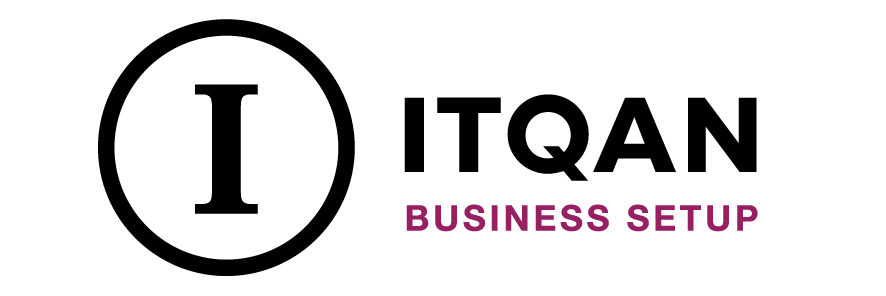
26 Jun Establishing a company in the Sharjah Free Zone
Free zones constitute an ideal destination for businessmen seeking to establish their companies and expand their business. Sharjah Free Zone is distinguished by its strategic location, which makes it one of the most attractive destinations for investors in the region. With its flexible economic policies, advanced infrastructure, and business-friendly legislative laws, Sharjah Free Zone is an ideal environment for establishing a company in Sharjah Free Zone.
This article aims to explore the process of setting up a company in the Sharjah Free Zone , focusing on the main steps and benefits that this zone offers to entrepreneurs.
First, we will take an overview of the concept of free zones and their role in supporting the local economy and attracting foreign investments. Then, we will discuss in detail the characteristics of the Sharjah Free Zone, which include tax facilities, flexible legislation, advanced logistics services, and other factors that make it an attractive destination for business.
The basic steps for establishing a company in the Sharjah Free Zone will be reviewed, including choosing the appropriate company type, submitting the necessary documents, and obtaining the necessary licenses and permits.
Finally, we will highlight some of the benefits that entrepreneurs can benefit from when establishing their companies in the Sharjah Free Zone, including access to regional and global markets, tax facilities, government support, and more.

Establishing a company in the Sharjah Free Zone
Steps to establish a company in the Sharjah Free Zone
Establishing a company in a free zone in Sharjah requires following several steps. Here is a general plan for establishing the company in this region:
- Choosing the type of company: You must specify the type of company you want to establish, such as a limited liability company (LLC), sole proprietorship, or joint stock company.
- Choosing a company name: The company name must be unique and not conflict with previously registered names in the area.
- Submitting a registration application: You must submit a registration application to the responsible authority in the Sharjah Free Zone.
- Determine the location of the company: You must determine the exact location of the company within the free zone, whether it is in an industrial or trade zone.
- Determine the capital: The capital required to establish the company must be determined and the necessary financial documents must be submitted.
- Submitting the necessary documents: You must submit the required documents such as the registration application form, a copy of the passport, personal photos, and other documents as needed.
- Obtaining the necessary licenses: After submitting the documents, you must wait for official approval from the relevant authorities and obtain the necessary licenses to start working.
- Opening a bank account: Once you obtain the licenses, you must open a bank account in the name of the company and deposit capital into it.
- Insurance and Permits: You may also need to obtain the necessary insurance and permits to operate your business.
- Tax registration: You must register with the local tax authority and obtain a company tax number.
The cost of establishing a company in the Sharjah Free Zone
The cost of setting up a company in the Sharjah Free Zone varies based on several factors, including the type of company, the size of the planned business, and additional costs related to licenses and required services. Here is a rundown of the approximate fees and costs that may be included:
- Registration fees: These fees include the cost of registering the company in the free zone and vary according to the type of company and the size of capital.
- License fees: There may be fees for obtaining the necessary licenses to conduct business activity in the free zone.
- Administrative services fees: The free zone may request additional fees for administrative services such as advising and administrative support.
- Insurance and Permits Fees: You may need to pay fees to obtain the necessary insurances and permits to operate your business.
- Legal and accounting consulting fees: You may need legal and accounting consulting to guide you through the company formation process and compliance with local laws.
- Rent and office costs: If you need an office for your company, you will need to pay for rent, insurance, and utilities.
- Business management fees: The free zone may require additional fees for daily business management such as maintenance and security services.
Documents required to establish a company in the free zone
The paperwork required to establish a company in the Sharjah Free Zone varies slightly based on the type of company and local regulations. However, here is a general list of basic documents that are usually required:
- Registration application form: The registration application form must be filled out with the necessary information for the company, such as the company name, type, and business activity.
- Copy of passport: A copy of the passport must be submitted for all shareholders and directors who will represent the company.
- Personal photographs: The application usually requires personal photographs of all shareholders and directors.
- Partnership Agreement Form: If the company is a partnership, a copy of the partnership agreement must be submitted that specifies the rights and obligations of each partner.
- Financial insurance document: The company may need to submit a document proving the company’s financial insurance.
- Financial documents: The required financial documents must be submitted, such as proof of capital and approval of bank accounts.
- Reports on business activity: The company may need to submit reports or studies about the business activity it intends to engage in.
- Activity-specific permits: The free zone may require additional permits for some special commercial activities.
Types of companies that can be established in the free zone
In the UAE Free Zone, including the Sharjah Free Zone, several types of companies can be established based on the needs of the business and the type of business activity to be undertaken. Among the common types of companies that can be established in a free zone include the following:
- Limited Liability Company (LLC): LLC is considered one of the most common types of companies in the free zone, as it allows the establishment of a company with a limited joint capital, and includes each partner’s contribution to the capital and his responsibility only within the limits of this contribution.
- Sole Proprietorship: An individual can establish a sole proprietorship without the need for other partners, and it is suitable for businessmen who want to take full responsibility for the company.
- Company Subsidiary: A foreign company can establish a branch in the free zone, which operates independently of the parent company and is subject to local laws and regulations.
- Company working in consulting services: Companies working in the field of consulting can establish their companies in the free zone, which provides a suitable environment for providing consulting services to local and international companies.
- Industrial Company: Industrial companies are allowed to establish their factories and production units in the free zone, which provides a suitable environment for production and manufacturing.
- Commercial Company: Commercial companies can establish their commercial activities in the free zone, whether they work in the field of retail, distribution, or international trade.
Benefits offered by the free zone to companies
The free zones in the UAE, including the Sharjah Free Zone, offer a range of attractive benefits to companies and entrepreneurs wishing to establish their companies and expand their business. Among these benefits:
- Customs facilities: Free zones provide customs facilities that allow companies to import and export goods easily, which reduces costs and facilitates shipping and distribution operations.
- Tax facilities: Companies located in free zones enjoy tax facilities, such as not imposing corporate income taxes for a specific period or greatly reducing taxes.
- Simplified bureaucratic procedures: Free zones provide simplified and facilitated bureaucratic procedures for establishing companies and issuing licenses and permits, which facilitates and facilitates the process of starting a business.
- Access to regional and global markets: Free zones provide a distinguished base for companies to access local, regional and international markets, which enhances opportunities for growth and business expansion.
- Advanced infrastructure: Free zones provide advanced infrastructure and integrated facilities, including ports, airports, roads and communications, which facilitate and facilitate production and distribution operations.
- Operational freedom: Free zones allow companies complete operational freedom, allowing them to achieve their business objectives independently without undue interference.
- Government support: The government provides strong support to companies located in free zones, by providing consulting services, financing facilities, and training programs.
In conclusion of this article, we find that establishing a company in a free zone in Sharjah represents an exciting opportunity for investors to benefit from a developed business environment and interesting features. Sharjah’s Freedom District enjoys a unique strategic location and advanced infrastructure, making it an ideal place for startups and large enterprises alike.
By offering benefits such as tax exemptions, customs facilities, and flexible legislation, Sharjah’s Freedom Zones provide an ideal environment for businesses and enhance opportunities for growth and prosperity. It also offers a variety of specialized services and facilities that support companies at every stage of their development.
In addition, Sharjah’s Hurriya areas are characterized by political and economic stability and thus provide a safe and conducive environment for business. With the availability of government support and administrative facilities, the process of establishing companies in these areas becomes easy and convenient.
The most important frequently asked questions: Establishing a company in the Sharjah Free Zone
Can foreign companies establish branches in the Sharjah Free Zone?
Yes, foreign companies can establish branches in the Sharjah Free Zone, which is subject to local legislation and regulations.
What benefits do companies get in the Sharjah Free Zone?
Key benefits include customs and tax facilities, advanced infrastructure, access to regional and global markets, and government support.
What are the laws and regulations that must be adhered to when establishing a company in the free zone?
You must adhere to local laws, regulations and legislation related to establishing and operating companies, which are determined by the relevant authorities in the Sharjah Free Zone.
What factors should be considered when choosing the Sharjah Free Zone to establish a company?
Several factors must be taken into account, including geographic location, logistical availability, infrastructure, tax and customs facilities, labor costs, and local laws and regulations.
What certificates and licenses are necessary for some types of companies in the free zone?
Some companies may need special certifications or professional licenses, such as health and safety certificates, building and construction licenses, or business permits.
What are the laws related to employment and labor rights in the free zone?
Labor laws in the free zone govern employment contracts and the rights of workers and expatriate workers, and companies must adhere to these local laws and regulations.



